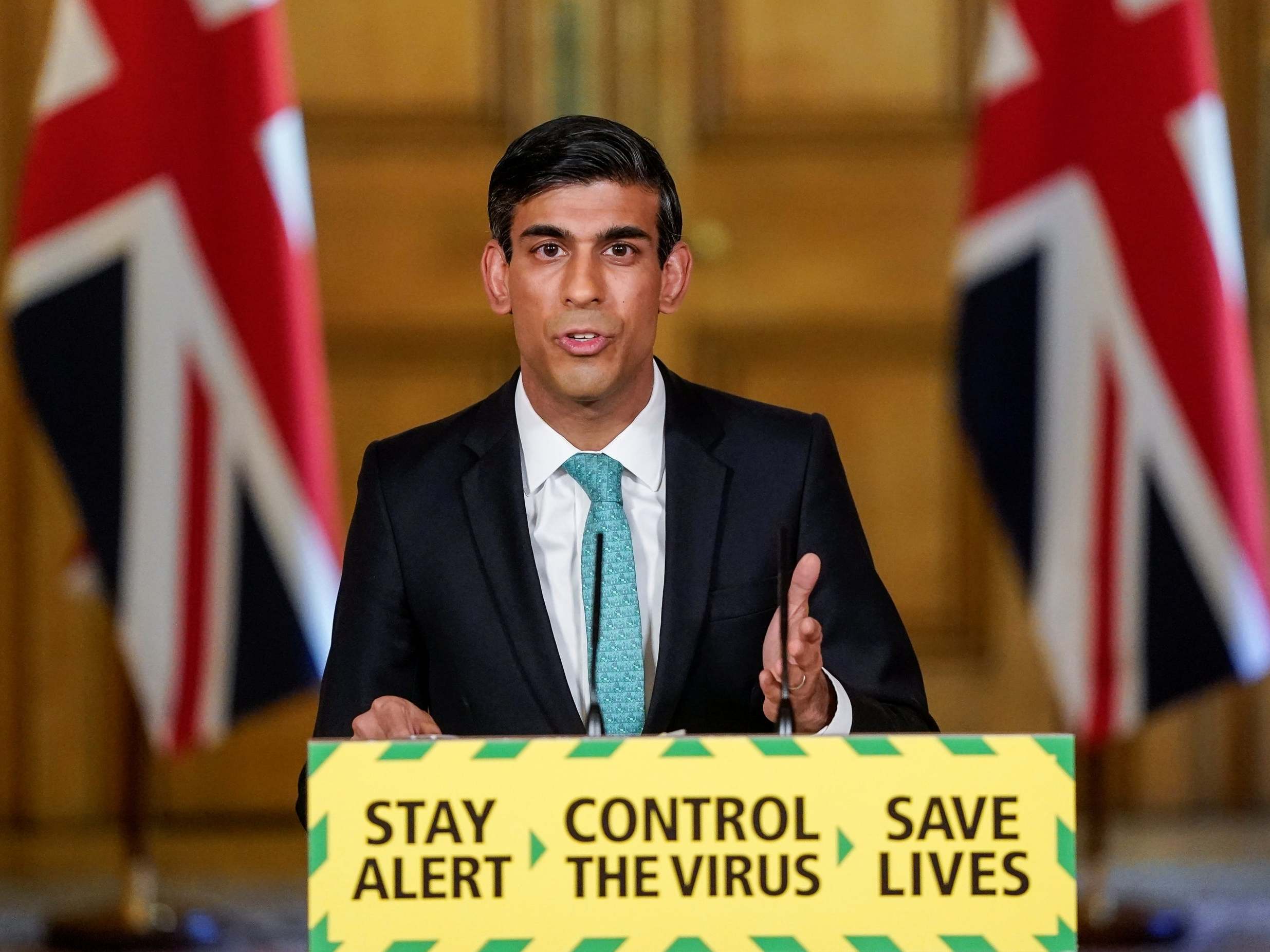Can we trust the predictions for Britain’s economy?
A witch’s cauldron of uncertainty is making life very difficult for the number crunchers – and it could become more of a problem for the chancellor, writes James Moore


The best way to describe the latest official economic numbers? Grim. The first official estimate for May showed a month-on-month improvement in the performance of UK plc, but it came in at just 1.8 per cent over April, the first full month of lockdown, when it recorded a record slump of 20.3 per cent. The economy is now a staggering 24.5 per cent smaller than it was in February.
The regular Reuters poll of economists had called for an uplift of 5.5 per cent in May. As predications go, that now looks like hitting the corner flag rather than the goal when taking a penalty. These are not normal times, however, and so you have to have a certain sympathy for forecasters.
The UK economy is a complex beast with many different moving parts, including human behaviour, which is notoriously unpredictable. But it’s usually possible to make reasonably accurate predictions about the way it’s going to go, given the aid of the wealth of data out there, historic trends, modelling, etc.
It’s a lot harder when you have a witch’s cauldron of uncertainty bubbling, spitting and throwing out strange and unexpected discharges. As a result, estimates inevitably start to look more like guesstimates.
Economists were able to call the turn well enough. The number of people travelling, lorry mileage, retail sales (the vast majority online), were all picking up in May, which told them the economy was growing by comparison to April.
What they weren’t able to accurately call was the degree of improvement, which was held back by a miserable performance from the dominant services sector, parts of which remained on a downward slope.
They were much more optimistic than they should have been.
At this point, it should be said that even the reliability of the latest numbers is questionable. They are but an initial estimate and will be subject to revision as more data makes its way into the hands of the number crunchers at the Office for National Statistics. That often happens but the degree of revision may be a lot greater this time because of all that uncertainty. These numbers need to be taken with much more of a pinch of salt than is usually the case.
Does this matter? It might. If policymakers have no reliable data to go on, and if their advisors can’t make reliable forecasts, how can they best tailor what they’re doing to what the economy needs?
Andrew Goodwin, chief UK economist at Oxford Economics, makes a good point in response. He says we’re still at the stage where chancellor Rishi Sunak and his team should be doing as much as they can. And they will know soon enough whether the measures announced in his summer mini-Budget are working the oracle or whether they need to return to the well.
So long as they remain willing to do that, to respond with pragmatism – no given with the current administration, although Sunak has proven to be more flexible than some of his colleagues – before the next scheduled budgetary event in November that’s all we can ask.
For the record, Goodwin says he remains optimistic about June and July given the significant relaxation of the lockdown that began in June. It doesn’t hurt that the virus appears to be in abeyance for now, with some notable exceptions (such as Leicester).
The newly announced rules on masks that require them to be used in shops should help, both with keeping it that way and restoring some of consumers’ threadbare confidence.
The problem may come further down the line if the forecasts remain erratic and subject to a much wider range than is usually the case.
Why? This is the point when Sunak’s policy decisions will need to be much more carefully tailored. Without the ability to call upon accurate forecasting it’s going to be much harder for him to deploy his needle and thread effectively.
Regardless, the road is likely to be bumpy for some time to come, potentially very bumpy given the “reasonable worst-case scenario” modelling that has been carried out to gauge potential impact of a second wave of Covid infections in the autumn, and with Brexit looming at the end of the year.
As I said, the chancellor’s lot is not a happy one.
Join our commenting forum
Join thought-provoking conversations, follow other Independent readers and see their replies
0Comments